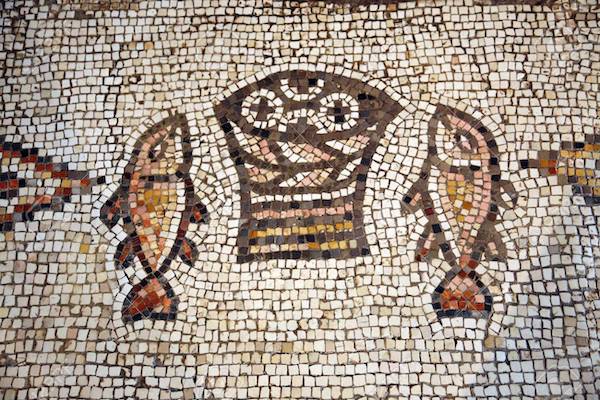It is hours before we enter the New Year. Metaphorically speaking it is like a birth. We are at the beginning of a new year; we leave behind the old, we leave behind what has been, although it lives on in the body of experience that we have lived in 2024. Change is before us and authentic change is not necessarily dramatic, it is more subtle, observable in the depths only to the eye of the soul. Liturgically speaking the universal Church opens the New Year dedicated to Mary, the Mother of God. What is the significance of this? She is the incarnate vessel of God’s life, giving birth to the Son of God. Dedicating the opening of the New Year to her reminds us that we are not to leave Christmas behind. We are to follow her pattern, saying our ‘yes’ along with these words spoken as if for the first time, “Let it be done to me according to your Word” (Lk 1:38). We enter the new year, like Mary, as incarnate vessels of Divine life.
To be an incarnate vessel of God’s love and mercy, to be part of the on-going incarnation of Christ’s life, of gospel life, means openness to conversion. In an essay titled “Authority and Freedom”, D. Mauro Giuseppe Lepori, Abbot General of the Order of Cistercians of the Common Observance, makes an important distinction between ‘conversion’ and ‘correction’. He writes “Often we try to correct the wrong attitudes without particularly noting that conversion is necessary for a person, a community, or a situation to be able to be corrected. Christ came instead to correct humanity by proposing a path of conversion, and a path of conversion toward following Him” (p.25). Conversion is about expanding our horizon, expanding our minds and heart…It is not as I said a big drama change rather it is humble, hidden in the silent depths. It is more often a small, new step in self-knowledge, in forgiveness, in seeing one another with the eye of God, in loving more. Conversion is the path to being this vessel of Divine life. “Let it be done to me according to your Word”, we pray. Not my way but your way…According to your Word, according to your will.
Lepori continues: “I think we all experience, at whatever level of pastoral work that has been entrusted to us, that every effort at correction without proposing a path of conversion remains sterile, does not bear fruit, does not change anything, makes the situation worse” (p.25). True change begins from within the depths, where we surrender our negativity, our murmuring spirit, our critical thoughts, our jealousies to following the gospel way.
To be a vessel of God’s ongoing life is reflective of deepest longing of the soul. D. Lepori adds this profound thought on ‘concversion’. He writes: “This work of conversion of heart is not an intimate, individual asceticism….For God has given us a heart that thirsts for communion, a heart in the image of the Trinitarian Heart of God, in which no Person can say ‘I’ without thinking of ‘us’ (p.36). I find these words striking in that conversion is not only my private endeavor. No, it is also a work done together, it is the source of our communion with one another. So, dear sisters and brother, even a community is called to be the vessel of Divine life where the face of Christ is seen in forgiveness, in self-less service, in ‘loving to the end’.
Pope Benedict XVI, in talking about the struggle between good and evil, says in his New Year’s Eve homily that “evil is noisier than goodness…whereas acts of love and service, the daily effort sustained with fidelity and patience are often left in the dark, they pass unnoticed. For this reason, too, we cannot stop at reading the news if we wish to understand the world and life; we must be able to pause in silence, in meditation, in calm, prolonged reflection; we must know how to stop and think. In this way our mind can find healing from the inevitable wounds of daily life, it can penetrate the events that occur in our life and in the world and can attain that wisdom which makes it possible to see things with new eyes. It is above all in the recollection of the conscience that God speaks to us, so that we can learn to evaluate truthfully our own actions and also the evil present within us and around us. In this way we are able to start out afresh on a journey of conversion that makes us wiser and better people, more capable of generating solidarity and communion and of overcoming evil with good” (2009).
Recollection, pondering, contemplating, stepping back interiorly and listening these are essential for conversion and for becoming God’s incarnate vessels of Divine life and love. Let us, then, be humble vessels of Divine life praying daily these eternal words of Mary, which have now become our words: “Let it be done to me according to your Word” (Lk 1:38).
Sr. Kathy DeVico, Abbess
Chapter Talk – New Year’s Eve – December 31, 2024, cycle-C


